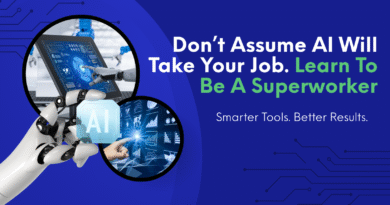Industry 4.0: What It Means for Your Startup
Industry 4.0, often referred to as the Fourth Industrial Revolution, is reshaping the global industrial landscape. From smart factories to AI-powered analytics, startups now have an unprecedented opportunity to innovate, scale, and disrupt traditional business models.
But what does this really mean for your startup?
Whether you’re a tech-based venture, a manufacturing unit, or a B2B SaaS platform, understanding Industry 4.0 can help future-proof your business.
What is Industry 4.0?
Industry 4.0 represents the integration of cyber-physical systems, IoT (Internet of Things), cloud computing, artificial intelligence (AI), and data analytics into industrial production and business operations.
It builds on previous industrial revolutions but focuses on interconnected, intelligent systems that communicate, analyze, and act with minimal human intervention.
Core Pillars of Industry 4.0:
- IoT (Internet of Things): Sensors and devices collect and share real-time data.
- AI and Machine Learning: Enable predictive maintenance, smart decision-making, and automation.
- Big Data & Analytics: Turn vast amounts of information into actionable insights.
- Cloud Computing: Allows seamless access and scalability of digital solutions.
- Robotics & Automation: Enhance productivity with minimal errors.
- Cybersecurity: Ensures safe, secure communication between systems.
Why Should Startups Care About Industry 4.0?
1. Competitive Edge
Embracing smart technologies allows startups to be more agile, cost-efficient, and customer-focused. By integrating Industry 4.0 tools early, startups can leapfrog larger but less adaptive competitors.
2. Enhanced Productivity
Smart manufacturing and predictive analytics reduce downtime, increase output, and optimize resource use.
3. Scalability
Cloud-based platforms and modular IoT systems make scaling easier and more affordable than ever.
4. Customer-Centric Solutions
With real-time data, startups can understand customer behavior and improve products or services faster.
Industry 4.0 Use Cases for Startups
| Startup Type | Industry 4.0 Application |
|---|---|
| Manufacturing | Smart factories with automated quality checks |
| Healthcare | IoT wearables and remote monitoring |
| Logistics | AI-powered route optimization |
| Agritech | Smart sensors for soil & crop monitoring |
| Retail | Predictive analytics for customer insights |
| Energy | Grid monitoring and predictive maintenance |
Real-World Startup Examples
1. Tulip (USA)
A no-code platform for manufacturing frontline operations. Uses IoT and cloud tools to digitize and streamline workflows.
2. Addverb Technologies (India)
Provides AI-enabled robotics and automation solutions for warehouses and factories.
3. KaaIoT (Europe)
Delivers end-to-end IoT platforms helping startups in agriculture, energy, and manufacturing.
Challenges to Adoption
While Industry 4.0 opens many doors, it also poses certain challenges:
- High initial investment
- Technical complexity
- Cybersecurity risks
- Talent shortages in AI and data science
Startups should consider strategic partnerships, government grants, or incubator programs to overcome these barriers.
How to Prepare Your Startup for Industry 4.0
- Start Small: Adopt one tech layer like cloud software or IoT sensors.
- Train Your Team: Upskill employees in data, AI, and digital tools.
- Use Scalable Tools: Opt for SaaS-based solutions for flexibility.
- Secure Your Data: Invest in strong cybersecurity frameworks.
- Track ROI: Measure outcomes and iterate using data analytics.
Government and Global Support
Governments worldwide are offering incentives and grants for digital transformation:
- India’s SAMARTH Udyog initiative
- Germany’s Plattform Industrie 4.0
- US Manufacturing Extension Partnership (MEP)
Startups should explore these avenues for funding and mentorship.
FAQs
What is the difference between Industry 4.0 and digital transformation?
Industry 4.0 focuses specifically on integrating advanced technologies like IoT, AI, and automation into industrial operations, while digital transformation is a broader shift affecting all areas of a business.
Can non-tech startups benefit from Industry 4.0?
Yes. Sectors like agriculture, retail, logistics, and healthcare are using Industry 4.0 tools for better efficiency and decision-making.
Is Industry 4.0 only for large enterprises?
No. Thanks to affordable cloud tools and open-source platforms, even small startups can embrace Industry 4.0.
How much does it cost to implement Industry 4.0 tools?
Costs vary depending on scale and tools used, but SaaS platforms and pay-per-use models make entry affordable for most startups.
Conclusion
Industry 4.0 is not a luxury—it’s a necessity for startups aiming to thrive in the digital-first world. With the right approach and tools, startups can leverage automation, data, and connectivity to build smarter, faster, and more resilient businesses.
Now is the time to future-proof your startup by embracing the Fourth Industrial Revolution.
📌 Pro Tip:
Explore accelerators and funding schemes focused on Industry 4.0 such as Plug and Play, Rockstart, or Startupbootcamp Smart City & IoT for capital, mentoring, and global exposure.



